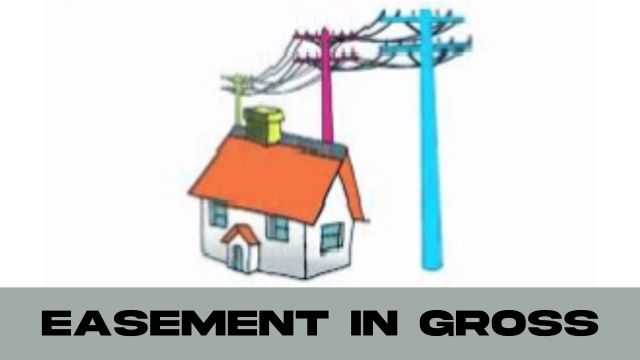
Self-employed real estate agents enjoy flexibility and independence but face challenges like income instability, high competition, and managing business expenses. They must handle their own marketing, lead generation, and client management while staying updated on industry trends and regulations. Success requires resilience, strategic planning, and excellent time management.

Are Real Estate Agents Self-Employed?
The world of real estate is dynamic and multifaceted, attracting individuals from various backgrounds who are drawn by the potential for high earnings and flexible working conditions. One of the most common questions about this profession is whether real estate agents are self-employed. The answer, while straightforward, involves understanding the nuances of what it means to be self-employed and how it applies to real estate professionals.
Defining Self-Employment
Self-employment refers to individuals who work for themselves rather than being employed by a company. They might own their business or work as independent contractors. Key characteristics of self-employment include:
- Autonomy: Self-employed individuals have control over their work schedule and how they conduct their business.
- Responsibility: They are responsible for managing their business, including finances, marketing, and client relations.
- Income: Earnings are directly tied to their efforts, with no guaranteed salary or benefits.
- Taxes: Self-employed individuals handle their tax obligations, including paying self-employment tax, which covers Social Security and Medicare.
Read more: What Is a Real Estate Broker? Types of brokers in real estate
Real Estate Agents: Independent Contractors vs. Employees
Real estate agents are typically classified as independent contractors, a form of self-employment. Here’s how this status influences their professional life:
- Work Structure:
- Autonomy: Agents decide when and where to work. They can set their hours and often work outside traditional office settings.
- Brokerage Affiliation: While agents work independently, they must affiliate with a licensed brokerage. This affiliation provides access to necessary resources, such as listing databases (MLS), marketing tools, and training.
- Earnings:
- Commission-Based Income: Real estate agents earn commissions on the properties they sell or lease. This commission is usually a percentage of the property’s sale price and is split between the listing and selling agents, as well as their respective brokerages.
- Potential for High Earnings: The commission structure allows for substantial earnings potential, but it also means income can be unpredictable and dependent on market conditions and personal performance.
- Expenses:
- Business Expenses: Agents are responsible for their business expenses, including marketing, transportation, office supplies, and continuing education.
- Deductions: Many of these expenses can be deducted from their taxes, reducing their overall tax burden.
- Tax Obligations:
- Self-Employment Tax: Agents must pay self-employment tax, which includes contributions to Social Security and Medicare.
- Quarterly Taxes: Unlike employees who have taxes withheld from their paychecks, self-employed agents must make estimated tax payments quarterly.
- Licensing and Education:
- Initial Licensing: Becoming a real estate agent requires completing pre-licensing courses and passing a state exam.
- Continuing Education: Agents must complete continuing education courses to maintain their license and stay updated on industry practices and regulations.
Benefits of Being Self-Employed as a Real Estate Agent
- Flexibility:
- Agents have the freedom to create their schedules, allowing for a better work-life balance. This flexibility is particularly appealing to those with family commitments or other personal interests.
- Earning Potential:
- There is no cap on earnings. Motivated agents can achieve significant financial success, especially in strong markets or niche specialties like luxury properties or commercial real estate.
- Entrepreneurial Spirit:
- Self-employment allows agents to build their brand and business. They can implement their marketing strategies, establish a unique market presence, and develop long-term client relationships.
- Variety and Independence:
- The job involves a variety of tasks, from showing properties and negotiating deals to marketing and administrative work. This diversity keeps the work engaging and allows agents to develop a broad skill set.
Challenges of Being Self-Employed as a Real Estate Agent
Being a self-employed real estate agent offers flexibility, independence, and the potential for substantial financial rewards. However, it also comes with significant challenges that can impact one’s professional and personal life. Understanding these challenges is crucial for anyone considering or currently working as a self-employed real estate agent.
1. Income Uncertainty
One of the most significant challenges for self-employed real estate agents is income inconsistency. Unlike salaried positions, where there is a predictable monthly income, real estate agents’ earnings are largely commission-based.
This means income can vary dramatically from month to month. There might be periods of substantial earnings followed by dry spells with little to no income. Managing finances and planning for the future becomes complex without a steady paycheck.
2. High Competition
The real estate market is highly competitive. There are numerous agents vying for the same clients and listings. Standing out in such a crowded field requires continuous effort, strategic marketing, and exceptional client service.
Self-employed agents must consistently prove their value and expertise to attract and retain clients, often with limited resources compared to larger real estate firms.
3. Marketing and Lead Generation
Generating leads and marketing properties are critical tasks that fall squarely on the shoulders of self-employed agents. Unlike agents affiliated with large firms, who may benefit from company-provided leads and marketing support, self-employed agents must develop and execute their own marketing strategies.
This includes creating a professional website, maintaining an active presence on social media, networking, and possibly investing in online advertising. Effective marketing requires both time and money, which can be challenging for agents who are just starting out.
4. Managing Business Expenses
Self-employed real estate agents are responsible for covering all their business expenses. These can include office rent, marketing materials, website maintenance, professional photography, client entertainment, and transportation costs. Additionally, there are fees for licensing, continuing education, and memberships in professional organizations. Keeping track of these expenses and ensuring they don’t exceed income is a constant balancing act.
5. Time Management
While being self-employed offers flexibility, it also requires excellent time management skills. Real estate transactions often involve irregular hours, including evenings and weekends.
Agents must be available to meet with clients, show properties, and attend closings at times that are convenient for their clients, which may conflict with personal time. Balancing work commitments with personal life can be challenging, and without the structure of a traditional job, it’s easy to become overwhelmed or overworked.
6. Lack of Benefits
Unlike employees of a company, self-employed real estate agents do not receive benefits such as health insurance, retirement plans, paid time off, or unemployment insurance. Agents must secure and fund their own health insurance, plan for retirement, and save for any periods when they may be unable to work. This lack of a safety net adds a layer of financial pressure and requires careful planning and saving.
7. Continuing Education and Staying Updated
The real estate industry is constantly evolving, with new laws, regulations, market trends, and technologies emerging regularly. Self-employed agents must stay informed about these changes to remain competitive and compliant. This involves investing time and money in continuing education, attending seminars, and reading industry publications. Keeping up with these requirements can be demanding, especially when managing a busy schedule.
8. Building and Maintaining a Network
Success in real estate heavily relies on relationships. Building and maintaining a network of clients, colleagues, and industry professionals is essential. Self-employed agents must be proactive in networking, attending industry events, and staying connected with past clients. This can be time-consuming but is vital for generating referrals and new business opportunities.
9. Emotional Resilience
The nature of real estate transactions can be stressful. Deals can fall through unexpectedly, clients can be difficult to satisfy, and market conditions can fluctuate. Self-employed agents must develop emotional resilience to handle disappointments and setbacks. Maintaining a positive attitude and staying motivated during challenging times is crucial for long-term success.
10. Technology and Tools
Modern real estate transactions often require the use of various technologies and tools, from customer relationship management (CRM) systems to virtual tour software and digital marketing platforms. Self-employed agents must be tech-savvy and willing to invest in and learn new tools to enhance their efficiency and service quality. This can be both a financial and a learning curve challenge.
11. Regulatory Compliance
Real estate transactions are heavily regulated, and self-employed agents must ensure they comply with all local, state, and federal laws. This includes understanding fair housing laws, contract law, and disclosure requirements. Non-compliance can result in legal issues, fines, and damage to reputation. Staying compliant requires ongoing education and meticulous attention to detail.
12. Client Management
Managing client expectations and maintaining strong relationships is crucial. Clients can be demanding, and their needs can vary widely. Self-employed agents must be excellent communicators, negotiators, and problem-solvers. Providing exceptional service is necessary to build a good reputation and secure repeat business and referrals.
Conclusion
Being a self-employed real estate agent offers many rewards, but it also comes with substantial challenges. From income uncertainty and high competition to managing business expenses and staying compliant with regulations, self-employed agents must navigate a complex and demanding landscape.
Success requires resilience, strategic planning, continuous learning, and excellent interpersonal skills. For those who can overcome these challenges, the rewards can be significant, both financially and in terms of career satisfaction.








